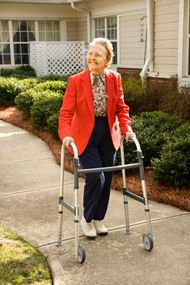
Urinary incontinence is a common concern. Statistics show that 4 in 10 women over the age of 65 deal with the issue. While it’s not a disease, it can still cause worry. That’s why it’s important to see a women’s health specialist to determine the cause of the symptoms and provide guidance to improve your comfort. Here’s what you should know.
For Women: Common Questions About Incontinence
How does it occur?
Urinary incontinence occurs when someone loses control of their bladder. Under normal circumstances, the bladder’s muscles naturally contract to alert the person that they need to use the bathroom. Urine is only released when the sphincter, situated around the urethra, relaxes.
Over time, however, those muscles weaken and lose the ability to “hold” the urine until the person can safely get to the toilet. As a result, urine can leak involuntarily.
What causes this?
 You must visit a women’s health specialist if you suspect incontinence to determine the cause. A urinary tract infection, for example, can cause temporary incontinence that may be resolved with medication.
You must visit a women’s health specialist if you suspect incontinence to determine the cause. A urinary tract infection, for example, can cause temporary incontinence that may be resolved with medication.
However, persistent problems may be due to stress on the bladder caused by childbirth or pregnancy. Menopausal women might experience this condition due to natural estrogen loss, which affects the bladder walls.
Neurologists also determine if the loss of control is due to Parkinson’s disease, stroke, brain tumors, or other cognitive concerns.
How can I tell if I experience this?
Urine leakage can occur whenever pressure is put on the bladder, such as when someone sneezes or lifts heavy weights. Some people feel pressure or spasms in the pelvic region.
Going to the bathroom more frequently than usual, along with wetting the bed at night, can also signal incontinence.
Is there a cure?
Addressing curable risk factors may resolve bladder control issues. For example, weight loss takes pressure off the bladder, minimizing symptoms.
Your women’s health specialist might recommend making lifestyle changes to reduce symptoms, too. Kegel exercises strengthen the muscles of the pelvic floor, helping patients regain control of weak muscles. Reducing intake of common diuretics, like caffeine and alcohol, also helps.
If you seek a dependable women’s health doctor to assist with your concerns, visit Nathan Littauer Hospital & Nursing Home in Gloversville, NY. At this acute care family practice and general surgery center, you’re treated with the utmost care and respect. The facility is licensed by the New York State Department of Health, offering a variety of valuable services to people of all ages. Visit their website to find out more about women’s health, or call (518) 725-8621 to schedule an appointment.
About the Business
(149 reviews)
Have a question? Ask the experts!
Send your question

